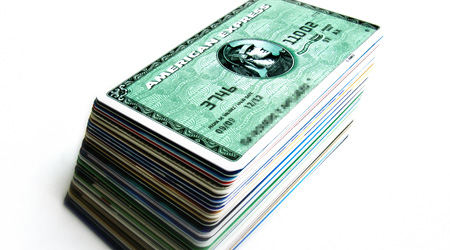Can I Use A Credit Card To Pay Another Credit Card?

Generally speaking, not really. Credit card companies often will not accept another credit card as payment for an existing balance. What this means is that you can not fill out information on the credit card payment stub as if you are buying a jacket from an online retailer. Credit card companies normally accept payments via cash, check, money order or wire transfer from a bank or other money market account. That doesn't mean there aren't still opportunities to pay off one credit card with another.
Balance transfers are an acceptable form of payment which will transfer an existing credit card balance to another credit account. Either over the phone or online, balance transfers will essentially pay off one credit card using another credit card. While called a transfer, behind the scenes the company which will be receiving the balance will collect the payment information for the outstanding debt and them make a payment in full to move over the existing balance. So even though it is referred to a balance transfer it is still using one credit card to pay off another.
Most credit card issuers also offer credit card convenience checks which can be used for more than just balance transfers. Convenience checks can often be used for any purpose the account holder chooses. One scenario would be to write a check to yourself for $1,000 on a credit card with a low balance and then use the funds to make minimum monthly payments on the credit card with the higher balance. Obviously this requires multiple credit cards which do not have maxed balances.
Balance transfers and convenience checks are not ideal scenarios and should be avoided if possible. Balance transfers are a good option for consolidating multiple high interest rate balances to a single lower balance which may make it easier to make monthly payments. But bouncing balances back and forth between credit cards is only a short term solution and future transfers could be denied on account review if they happen too often. Convenience checks can also be rejected by the originator and are only a stop gap measure. In addition, both of these options are liable to incur transfer fees and transaction charges. Most convenience checks have a minimum fee of 4% or $10 per check which can add up quickly and make them less appealing.
In most cases one credit card cannot be used to pay another credit card but sometimes additional tools present themselves and can be used to transfer balances or make short term payments. Credit card companies have automated processes which look for suspicious account activity, normally for detecting potential fraud, and can flag and deny these types of options. If it looks like a credit card holder is unable to make timely payments in a normal fashion then the account could be adversely affected by having the limit lowered or even closed. Making standard payments with a check, money order or wire transfer is the only way to insure long term financial stability.







